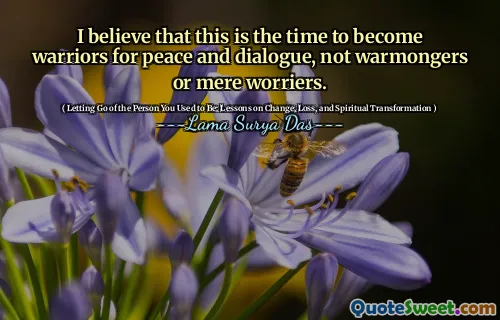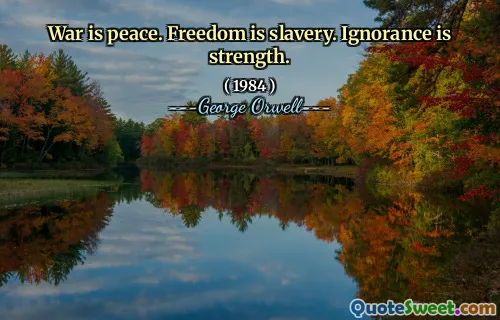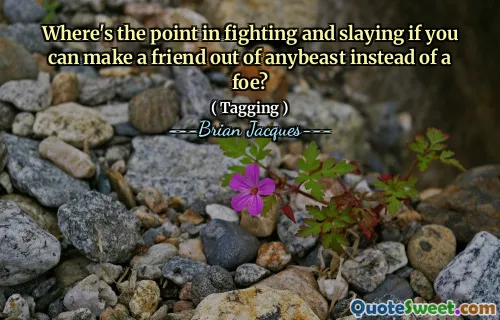
I like to be a peacekeeper, and I just don't believe in stirring up conflict.
The quote reflects a profound understanding of the value of harmony and the importance of maintaining peace in various aspects of life. Choosing to be a peacekeeper demonstrates an individual's preference for diplomacy, understanding, and coexistence rather than confrontation. In a world often marked by disagreements and misunderstandings, the desire to avoid stirring up conflict highlights a maturity and an inclination towards constructive dialogue. Such an approach not only fosters healthier relationships but also contributes to a more empathetic society where differences are resolved through communication rather than hostility.
From a personal perspective, embracing the role of a peacekeeper can be both challenging and rewarding. It requires patience, active listening, and sometimes restraint, especially when facing provocations or disagreements. The decision to prioritize peace over winning an argument often leads to more sustainable solutions and can prevent long-term resentment. As humans, conflicts are inevitable, but choosing how to respond can significantly influence outcomes. The sentiment expressed in this quote underscores the importance of intentionality in conflict management—being proactive in preventing conflicts from escalating and seeking common ground.
Furthermore, this approach aligns with principles of emotional intelligence, where understanding and managing one's emotions, as well as empathizing with others, are crucial. It promotes a sense of calm and stability in tumultuous situations, which is invaluable in personal relationships and professional environments alike. The philosophy of peacekeeping isn't about passivity or avoiding difficult conversations but about approaching conflicts with a mindset geared toward resolution, understanding, and respect. Ultimately, adopting such an outlook can lead to deeper connections and a more harmonious existence, both internally and externally.
---Angie Martinez---








